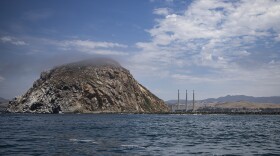-
Hurricane forecasts are now much more accurate, 20 years on — largely because of federal government research.
-
Amid a legal fight over California’s power to regulate car and truck pollution, state agencies are suggesting policies that need stable funding, legislative action, or lengthy rulemaking.
-
Air conditioning has become a hot debate in France in a summer of heatwaves.
-
The fires have ravaged small, sparsely populated towns in the country's northwest, forcing locals in many cases to act as firefighters. About 2,382 square miles have burned across Spain and Portugal.
-
A lot of companies want the EPA in charge of setting national climate regulations because it helps shield them from lawsuits and creates a predictable environment in which to make investments.
-
After years of cracking down on California’s oil industry, Gov. Gavin Newsom and legislative Democrats are moving to get Kern County wells pumping again to avoid soaring gasoline prices.
-
In small town Washington — where hydropower is plentiful — data centers are creating jobs and funding amenities. But water and energy aren't unlimited — and some worry about long-term sustainability.
-
Transportation Secretary Sean Duffy says he doesn't agree with federal subsidies for high-speed EV chargers, but that his department "will respect Congress' will" and release the funds.
-
The Energy Star program has saved Americans more than a half-trillion dollars in energy costs and has reduced climate pollution. Now the Trump administration wants to eliminate or privatize it.
-
The Mojave Desert tortoise has long been considered a threatened species, but in June, California declared it endangered.
RELATED STORIES
Sign up for our newsletters!
Keep up with all the latest news, arts and culture, and TV highlights from KPBS.
- Has Trump kept his campaign promises to American workers? Here's what some say.
- How Trump is decimating federal employee unions one step at a time
- Don't let a selfie be the end of you
- How 3 Hawaiian teen princes brought surfing to the mainland
- More students head back to class without one crucial thing: their phones























